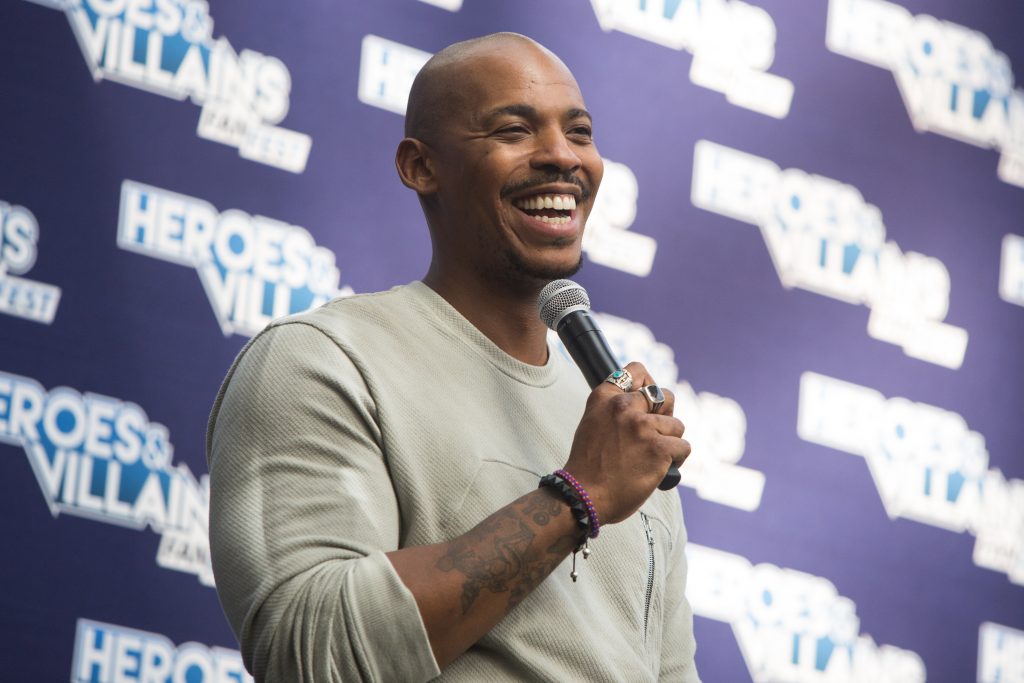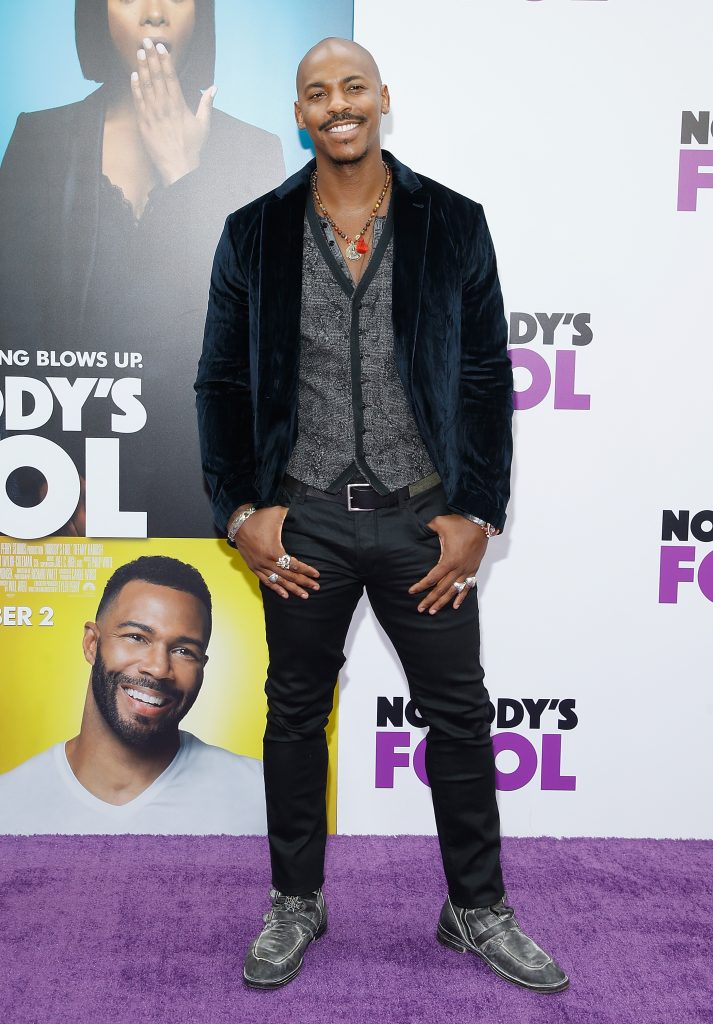
*Award-winning actor and musician Mehcad Brooks (“Supergirl”) has spoken openly about his views and beliefs on gender, race and sexuality and now the singer/songwriter of “True Blood” fame is sharing his perspective in an essay for EURweb.com.
Writing and recording under the moniker KING GVPSV, Mehcad recently released his debut, full length album “May 20th” on July 13, 2018. He is also best known for USA Network’s “Necessary Roughness,” and for his award-winning role as Matthew Applewhite on ABC’s “Desperate Housewives.”
Below he shares the emotions that followed an interview he had with a Trans reporter and how the moment highlighted their shared “issues of being overlooked, underrepresented and sidelined by a majority culture.”
OTHER NEWS YOU MIGHT HAVE MISSED: Will Packer: ‘”Little” Is Something For Mothers To Take Their Daughters To’

The journalist looked at me, her eyes wide with emotion and asked, “How does it feel to be at the forefront of such a progressive movement? This is the first time I’m seeing myself represented as a superhero.” I smiled and gave her a high-five. I was moved by her words and asked, “How does it make you feel?” And her response was an honest burst of tears. I stood up and walked to where she was and offered a hug. We embraced one another as she cried into my shoulder. Not only did I feel her pain as a trans woman, but I recognized it as a foe I have battled since childhood. The issues of being overlooked, underrepresented and sidelined by a majority culture.
So, there we stood, kindred spirits bonded by similar life experiences that have shaped each of us. That meaningful moment happened during an interview in which I talked about the cultural significance of “Supergirl,” and how blessed I was to be part of a show that is breaking down stereotypes of all kinds and embracing diversity in all forms. We talked about the new story lines coming to the show this season.
What was interesting, is during one part of this particular interview I shared with the journalist what my girlfriend has said about me as an example of how someone (like myself) can’t be stereotyped or lumped into one gender category or defined by conventional labels. Gender and sexuality are not simple, in fact they’re extremely complex and beautiful and it shouldn’t be weaponized to degrade or pull us apart. While that interview came and went, once it was published I couldn’t help but feel like the topic of my personal thoughts on LGBTQ rights were grazed over, possibly even misrepresented.
I was raised in a family with two parents recognized as civil rights leaders in Texas, who continue to fight for the rights of POC (People of Color), the LGBTQ community, union workers, women, undocumented persons, and people with disabilities. My parents’ idea of fun summer vacations was to drag my brother and I to civil rights meetings and town halls across the country every year. It rubbed off on us. In high school, I ran for student body president during my junior and senior year on a platform of bringing together students that were alienated by the majority group. They not only included kids of color, but students with special needs and LGBTQ students. And we won. Our school was better for it. Diversity works, and I saw that first hand as a teenager.
In 2008 I continued my activism with the LGBTQ community by joining the HRC, which I am still a member of. I gave multiple interviews between 2008-2011 discussing marriage equality, vowing that I wouldn’t even consider marriage until our LGBTQ brothers and sisters could be afforded the same rights and privileges as our straight ones. I recall a female reporter at the time, surprised at my statement, asked why I said that, why I even cared. My answer: It’s everyone’s human rights. That belief means that the LGBTQ community was entitled to the support of their straight brothers and sisters regarding civil and human rights. Period.
Those experiences are why I continue to speak out and fight alongside LGBTQ people and all marginalized communities for equal rights and a seat at the table. I know that LGBTQ rights and freedoms are tightly tethered to my rights and freedoms. We are in this battle for civil rights together and are stronger together.
A friend told me she was afraid she’d never find self love. I told her…
It’s not a destination to which you must find the road. Rather I’ve found it to be a place you inhabit so heavily that you become like gravity pulling in the things that support your position.
— Mehcad Brooks (@MehcadBrooks) December 24, 2018
America has created a competitive, polarizing attitude among historically marginalized groups: Which group has suffered the most? Which group has endured the most pain? This competition has no winner. It pushes us to search and destroy any piece of information — true or false — we overhear. Regrettably, that leads us to assign bigoted motives in places it does not exist.
I know how it feels to be stereotyped, unfairly characterized and targeted. I know all too well the pain of being judged by the color of one’s skin, physical appearance or alienated because of who you chose to love.
It’s why at the interview I needed to hug her — and be hugged by her.
As I said in that interview and several other interviews, there really is only one gender, one race, and one ethnicity when you get right down to it — that is the human race. The more we distance ourselves from our humanity, the more we delay our progress. We need to be about spreading that truth and pushing our goals as an inclusive, diverse and beautiful community.
Some might want to dwell on hate. But for me, this is a moment of clarity we can use to reaffirm our humanity and love for one another.
We Publish News 24/7. Don’t Miss A Story. Click HERE to SUBSCRIBE to Our Newsletter Now!






